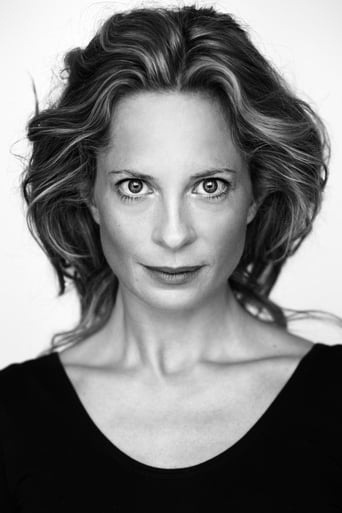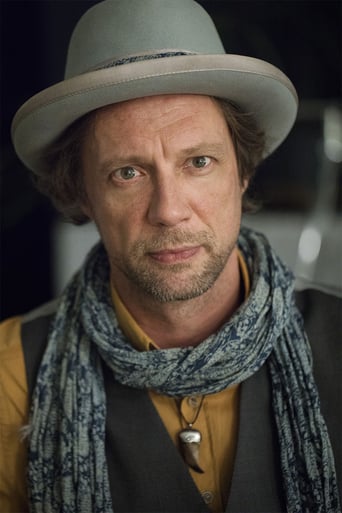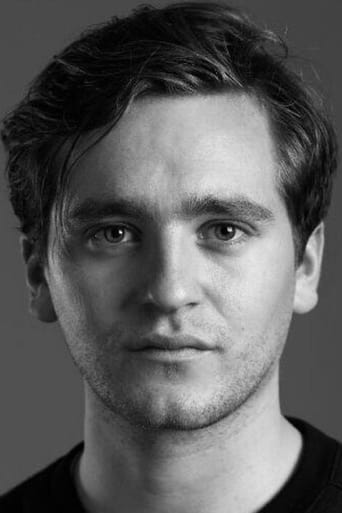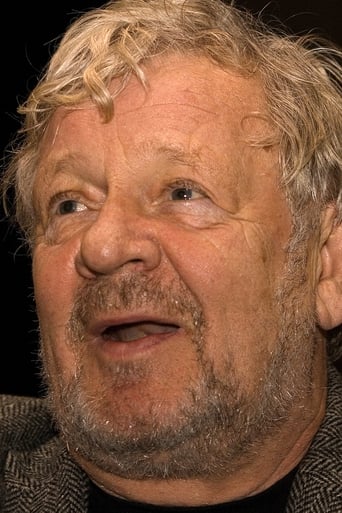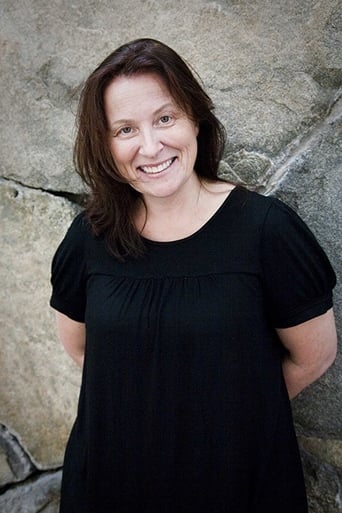Solemplex
To me, this movie is perfection.
CrawlerChunky
In truth, there is barely enough story here to make a film.
Sindre Kaspersen
Norwegian screenwriter and director Margreth Olin's feature film debut which she also wrote, is partly based on her unpublished documentary "Pias verden" which was shelved due to the life situation of the person the director was portraying. It premiered in the Discovery section at the 34th Toronto International Film Festival in 2009, was shot on location in Norway and is a Norway-Sweden-Finland co-production which was produced by Norwegian screenwriter, producer and director Thomas Robsham. It tells the story about Lea who is just a little girl when her mother named Madeleine invites her ex-boyfriend named Ole into their home. The first time with the new family member seems promising and Lea looks at Ole as a helper sent from heaven, but when the reunited lovers redecorates their home into an open arena of drunkenness and violence, Lea becomes a helpless witness to Ole's abusive treatment of her mother. Lea is wise and strong, but as time passes the environment around her becomes so unbearable that she seeks comfort in the substance that has deprived her from the relationship she once had to her mother.Margreth Olin's newest film draws a fictitious though close to real life portrait of a woman's battle to get out of her drug addiction so that she can regain custody of her adolescent daughter. While notable for it's naturalistic milieu depictions, fine cinematography by Norwegian graphic designer and writer Kim Hiorthøy and editing by Norwegian film editor Helge Billing, the Norwegian filmmaker's social realistic style is as present here as it was in her thematically related novel film "Lullaby" (2006), and with her characteristic voice-over narration she functions both as the films all-knowing narrator and Lea's inner monologue. The filming is often hand-held, close ups are frequently used, the perspectives are plentiful and the filmmaker repeatedly uses extreme close ups where she zooms in on various parts of the human body, a technique that was prominent in Danish director Susanne Bier's films "Open Hearts" (2002), "Brothers" (2004) and "Things We Lost in the Fire" (2007). It also contains minimally movable scenes of lesser crowds, numerous still images, observational slow motion scenes, scenes of flowers dancing in the wind and several representative individual scenes of a lonely Lea playing at her room or out in the woods where she has created her own private comfort zones.Narrated with a fragmented narrative structure, mostly from the protagonist's point of view and through frequent use of flashback scenes the background story to this intimate character portrait which opens with the image of a defeated woman standing in a dirty toilet with her pants down on her knees and a syringe in her rear end, is unfolded. The cogent narrative structure which works well in this case creates a significant unpredictability and paralleled with the atmospheric music by Norwegian musicians Thomas Dybdahl, Rebekka Karijord, Kari Rueslåtten, Björnstjärne and The White Birch, it enriches the pace. This dense biographical drama examines themes like drug addiction, longing, neglect, solitude and destructive love, but the main theme is as it was in the director's documentary "Kroppen min" (2002), the relationship between a mother and her child. In one of the films strongest and most contrasting scenes, composed to Thomas Dybdahls song "From Grace", Lea meets Henrik whom she falls in love with and has a daughter called Sonja with. During the four minutes this song lasts the director visualizes the main character's first experience of true happiness and how sporadic happiness can be when she shortly after the song ends, shows the image of Lea's first heroin injection. The acting performances by Swedish actress Gunilla Röör "Under the Sun" (1998) and Finnish actor Antti Reini "Il Capitano" (1991) are commendable and Norwegian actress Maria Bonnevie gets across the heroines strength and fragility in her most notable acting performance since the one she delivered in Andrey Zvyagintsev's "The Banishment" (2007). In a literary and lyrical way "Angel" manages to convey hope's existence in the darkest imagined life situations. It is one of the best Norwegian feature film debuts in years and Margreth Olin's loyal poem to her brave friend is a respectable and charitable salutation to human dignity.
OJT
Engelen (The Angel) doesn't start off making us believe this is a really good movie, but half way through Norwegian filmmaker Margareth Olin takes the grip. You start understanding how heartfelt and realistic this really is.Heroin addiction is not understandable to most of us. But the need to cope and to be loved is. Margareth Olin was to make a new documentary, but disagreements with the family of the addict, made her make it into a feature film, realistically and beautifully portrayed by Maria Bonnevie.We get to know the young addicted woman, as she visits her daughter, completely stoned and disgusting, together with her well-meaning, but sadly helpless mother. (Fabulously played by Lena Endre, impossible to recognize before you see the name on the casting in the end.) Then we are getting behind the tragedy. How could this happen?This is where the explaining tends to be "oh no not another abused childhood-story", but the film doesn't go all the way, though only implicating there could've been something more ruining this young girls life.We get told by the storyteller (Olin herself) that no one really understand where it went wrong. And this is where the film takes itself up to another level, far beyond most of these kind of films.We're shown where the happiness still holds something unexplainable making the young loving couple addicted to heroin, where it comes to them not able to cope with the upbringing of the child. And the film, which started off like a tragedy, now start giving us a trace of hope.Being a cynical, I started caring, instead of giving the heck in the addicts. As Olin says: "There's no louder cry than being a heroin addict" implicating that love and care is what these sad and lonely addicts need.Olin has impressed once more. Balancing on a 7 or 8 out of 10 is not because of the storytelling or the acting. This is actually superb. The problem is the first part of the movie, not able to engage the way the latter part does. There's an immediate danger you'll give up before you find the good stuff in this bag. Also some of the cutting is not to my satisfaction. This is maybe a bit too much documentary in the styling. OK, the film has a genuine feel of a documentary, still not being one. Being harsh, realistic, hardly without music in the first part, we find the poetry and some fabulous music. Especially the final theme is so well connected to the ending, that it is almost unbelievable.It is strange how this movie grows on you to jump-start your own heart, even if you really don't want to care. This is the same you feel being approached by a begging addict in the streets. Next time I meet one of this miserable youngsters, I'll be thinking of "Engelen". It gives no real answers to how and why it happened, but an answer we all need to find, is to care about our fellow humans not able to cope with life as it is.
Bones Eijnar
Yesterday I revisited one of my favorite comedies of all time with Bruce Robinson's 'Withnail & I' (1987), and as the film starts we see the "I"-character seated in the living room with an expression on his face signalizing depression, uncertainty and paranoia, and I've always wondered what the character is thinking about in that moment, exactly what has he experienced. Well, now I know.Earlier the same day I went to the cinema seeing Margreth Olin's first feature-debut 'Engelen' ('The Angel'). We get to know Lea (Bonnevie), a troubled young woman whose sad childhood has lead her life into heroin addiction. She feels a sustaining relation to her difficult mother who's lead herself into a problematic relationship of alcohol abuse, drugs and rape after her husband's tragic cancer-death. Lea sees her mother fading away, as she herself in early age slips into depressing thoughts of guilt, misunderstanding and loneliness. But you have to know when to stop - I left the cinema 40 minutes in and had a urging need for rehab after this horrible film experience.


